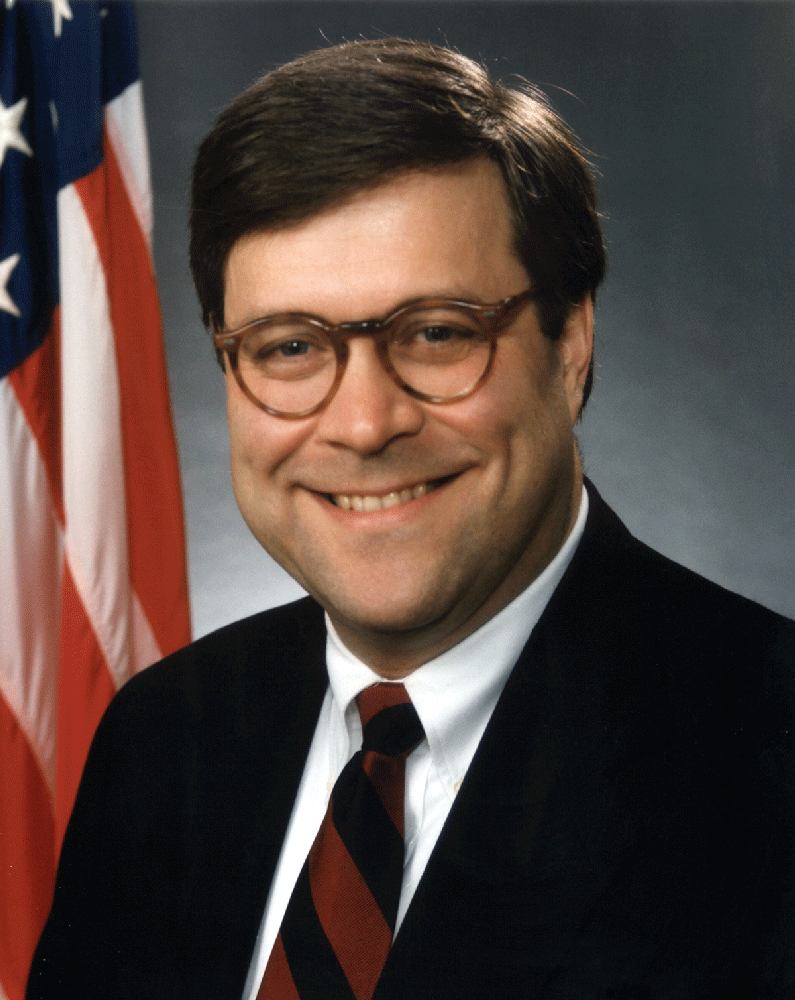Imagine for a moment being William Barr. You are 68 years old and healthy and have a lovely family. You’ve enjoyed a fine career in Washington, in and out of public service, and now you are making good money in private practice at a big firm. You are remembered, if you are remembered, fondly as an old-school Republican functionary. Imagine then saying to yourself: I think what makes the most sense for me right now in my life is to undertake a new chapter in government by tethering myself to the most corrupt administration in the nation’s history led by a president who is an unindicted co-conspirator and who may also be a Russian agent.
Barr, on the cusp of becoming the nation’s 85th attorney general, answered various forms of this question Tuesday during the tepid, almost sleepy, first day of his confirmation hearing before the Senate Judiciary Committee. And the upshot of his answers were this: I took this job at this stage in my life because I have reached a point in my career where I don’t have to worry about a career and, for that reason, I will not be bullied by the president or be party to any illegal conduct at the White House or Justice Department. In other words, I don’t care if ultimately the president destroys my future earning potential or professional reputation.
It’s about the wisest thing Barr can say in the strange circumstances in which he finds himself because it requires anyone challenging him to prove what he thinks in the recesses of his own mind. But we don’t need to go there to understand that either one of two things is really happening here. Either Barr actually believes that he has the courage and skill to rescue the Justice Department by putting himself between Trump and the institution or he sees in the chaos surrounding Trump an opportunity to help implement the authoritarian views about presidential power that Barr has held for at least the past three decades.
If Barr believes he’s coming to rescue the rule of law from the clutches of this White House, he’s delusional. He knows—we all know—that as soon as he takes some action which the president deems insufficiently loyal, the president will tee off on him. He knows—we all know—that he would never have been selected for this job if he hadn’t shown, in word or deed, that he and Trump are fellow travelers when it comes to executive authority. Nothing Barr said Tuesday about independence, impartiality, and integrity cures this essential truth: Trump destroys all he touches.
I think Barr took the gig instead because he sees it as his last great opportunity to point the law even further to the right than he was able to steer it during the Bush administration, where he was last seen helping fuel mass incarceration on the one hand and broad pardon power on the other. I think this need for one final shot of glory explains why Barr auditioned for the job with his June 2018 memo that undercut Mueller’s positions—a memo Barr made sure the president and his lawyers saw. I think it explains why Barr, the acclaimed institutionalist, hasn’t already recused himself from the Russia investigation because of his prejudgment of it.
Instead of an honest discussion of why Barr the lawman wants to go work for a president who is under at least two criminal convictions, we saw Tuesday Barr used mostly as a prop for Republicans who had plenty to say about Trump and the Russians. Plenty to say, that is, about their concern that FBI officials would have the gall to initiate an investigation into the president’s alleged role as a foreign mole. Over and over again Barr was invited to share his disdain not for a scandalized president but for the federal officials investigating him. Over and over again, with varying degrees of conviction, he refused to take the bait. Good on him.
That line of questioning, of course, tells us more about where Senate Republicans have landed in regards to the latest news about Trump and the Russians. The more we learn about the ways in which the president may have been compromised the more congressional Republicans try to deflect the story onto the FBI. This may undermine national security in countless ways, but it also sends a strong signal to Barr that he has plenty of support on Capitol Hill if and when he tries to undermine Mueller’s work. Barr is speaking to reporters and Democrats when he pledges to protect Mueller. Senate Republicans are speaking to Barr when they urge him to go after the FBI and not the alleged Russian agent in the White House.
That’s it. Nothing else during Tuesday’s snooze-fest was surprising in the least. Barr hews to most of the partisan views embraced by Jeff Sessions, his predecessor at the Justice Department, and he’s clearly going to be confirmed. He signalled again during his answers to questions from the panelists that he is going to aggressively implement the president’s policies on immigration, and criminal justice, and likely voting rights as well. On these and other substantive issues there will be no “rescue” for the Justice Department from its recent retrenchment. Bill Barr is just Jeff Sessions with a deeper voice and a longer resume.
Andrew Cohen is a senior editor at the Marshall Project and a fellow at the Brennan Center for Justice.







0 Comments